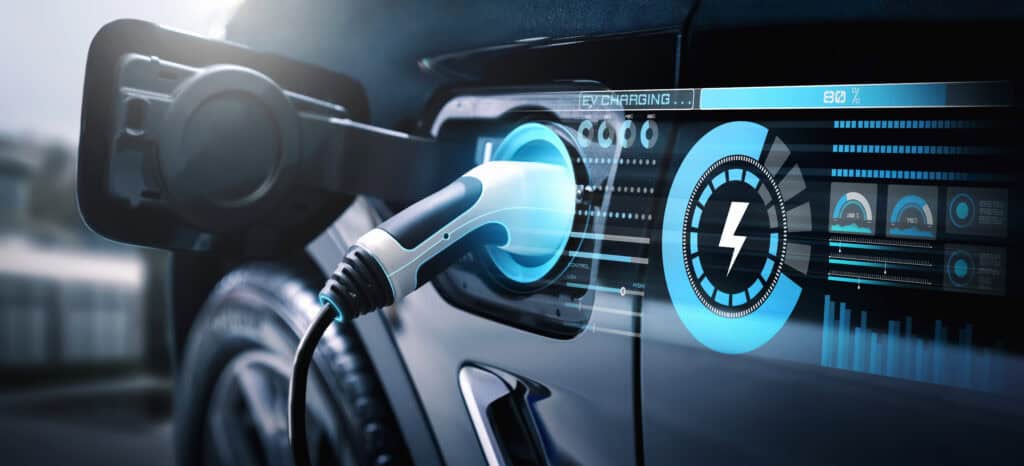
Electric vehicles (EVs) are becoming increasingly popular due to their environmental benefits and cost savings. However, maintaining an EV is different from a traditional gasoline-powered car. Proper electric vehicle maintenance is crucial to ensure optimal performance, longevity, and safety. In this blog, we’ll cover essential maintenance tips for your EV, focusing on the unique aspects that set them apart. Let’s dive in and help you keep your electric vehicle running smoothly.
1. Battery Care and Maintenance
The battery is the heart of your electric vehicle, and its proper maintenance is crucial:
- Regular Charging: Follow the manufacturer’s guidelines for charging. Avoid letting the battery deplete completely and try to maintain a charge between 20% and 80% for daily use.
- Temperature Management: Extreme temperatures can affect battery performance and lifespan. Park in shaded areas during hot weather and in a garage during cold weather to protect the battery.
- Software Updates: Keep your EV’s software up to date, as updates can improve battery management and overall vehicle performance.
2. Tire Maintenance
Tires on electric vehicles wear differently due to the instant torque and heavier weight compared to traditional cars:
- Regular Inspections: Check tire pressure monthly and look for signs of uneven wear or damage.
- Rotation and Alignment: Rotate your tires every 5,000 to 8,000 miles and ensure proper alignment to prevent uneven wear.
- Tire Replacement: Replace tires with ones designed for electric vehicles to handle the additional weight and torque.
3. Brake System
EVs use regenerative braking, which helps to reduce wear on traditional brake components:
- Brake Fluid: Check and replace brake fluid as recommended by the manufacturer.
- Brake Pads and Rotors: Even though regenerative braking reduces wear, it’s still important to inspect brake pads and rotors regularly for any signs of wear or damage.
4. Cooling System
EVs have cooling systems that manage the temperature of the battery, motor, and electronics:
- Coolant Levels: Regularly check coolant levels and top up if necessary. Follow the manufacturer’s guidelines for changing the coolant.
- System Inspection: Have the cooling system inspected during regular maintenance checks to ensure it’s functioning correctly.
5. Software and Electronics
Modern electric vehicles rely heavily on software and electronic systems:
- Software Updates: Regularly update your vehicle’s software to benefit from the latest features, improvements, and bug fixes.
- System Checks: Periodically check all electronic systems, including the infotainment system, navigation, and safety features, to ensure they are working properly.
6. Exterior and Interior Care
Maintaining the appearance of your EV is also important:
- Cleaning: Regularly wash and wax the exterior to protect the paint. Clean the interior to keep it looking fresh and to prevent wear.
- Inspection: Check for any damage to the exterior and interior components, such as seals, trim, and upholstery.
7. Professional Maintenance and Inspections
While many maintenance tasks can be performed at home, it’s important to have your EV inspected by professionals:
- Scheduled Maintenance: Follow the manufacturer’s recommended maintenance schedule for professional inspections and services.
- Specialized Technicians: Ensure that any professional work is carried out by technicians who are trained and certified to work on electric vehicles.
8. Preparing Your Home’s Electrical System for EV Charging
Before you bring your electric vehicle home, it’s crucial to ensure that your home’s electrical system can handle the additional load:
- Electrical Capacity: Check if your home’s electrical panel has the capacity to support the additional load of an EV charger. You may need to upgrade your panel to accommodate the charger.
- Dedicated Circuit: Install a dedicated circuit for your EV charger to ensure safe and efficient charging. This prevents overloading your existing circuits.
- Professional Installation: Hire a licensed electrician to install your EV charger. This ensures that the installation meets all local codes and safety standards.
- Choosing the Right Charger: Select a Level 2 charger for faster and more efficient charging at home. Level 2 chargers require a 240-volt outlet and provide a quicker charge compared to standard 120-volt outlets.
Is Your Home EV Ready?
Proper electric vehicle maintenance is essential to ensure the longevity, performance, and safety of your EV. By following these tips and scheduling regular professional inspections, you can enjoy the many benefits of electric vehicle ownership while minimizing potential issues. But if your home isn’t ready, you can damage your car’s battery or end up stranded!
Our experienced team is trained in the latest EV technologies and ready to help prepare your home for your electric vehicle. Schedule an appointment now and drive with confidence!
